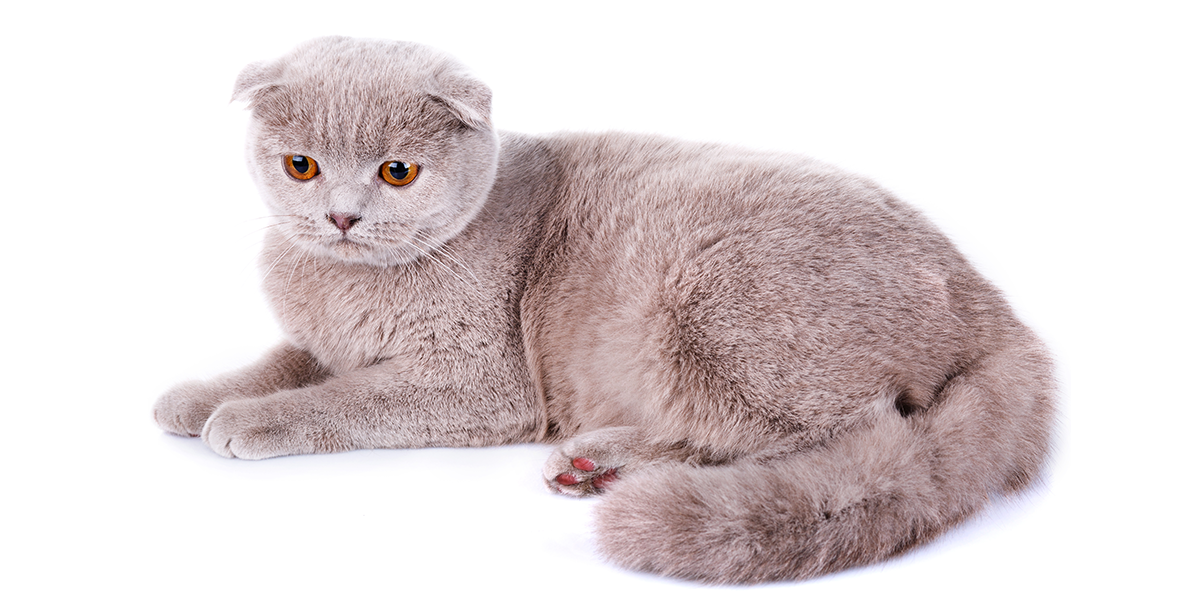The most noticeable feature of a Scottish Fold is its ears, which are small and folded forward. The tips of the ears are rounded. The coat of the Scottish Fold is short and dense. It comes in a variety of colours and patterns. Folds are said not to be an active breed, and this may be because of pain involved in movement (see below).
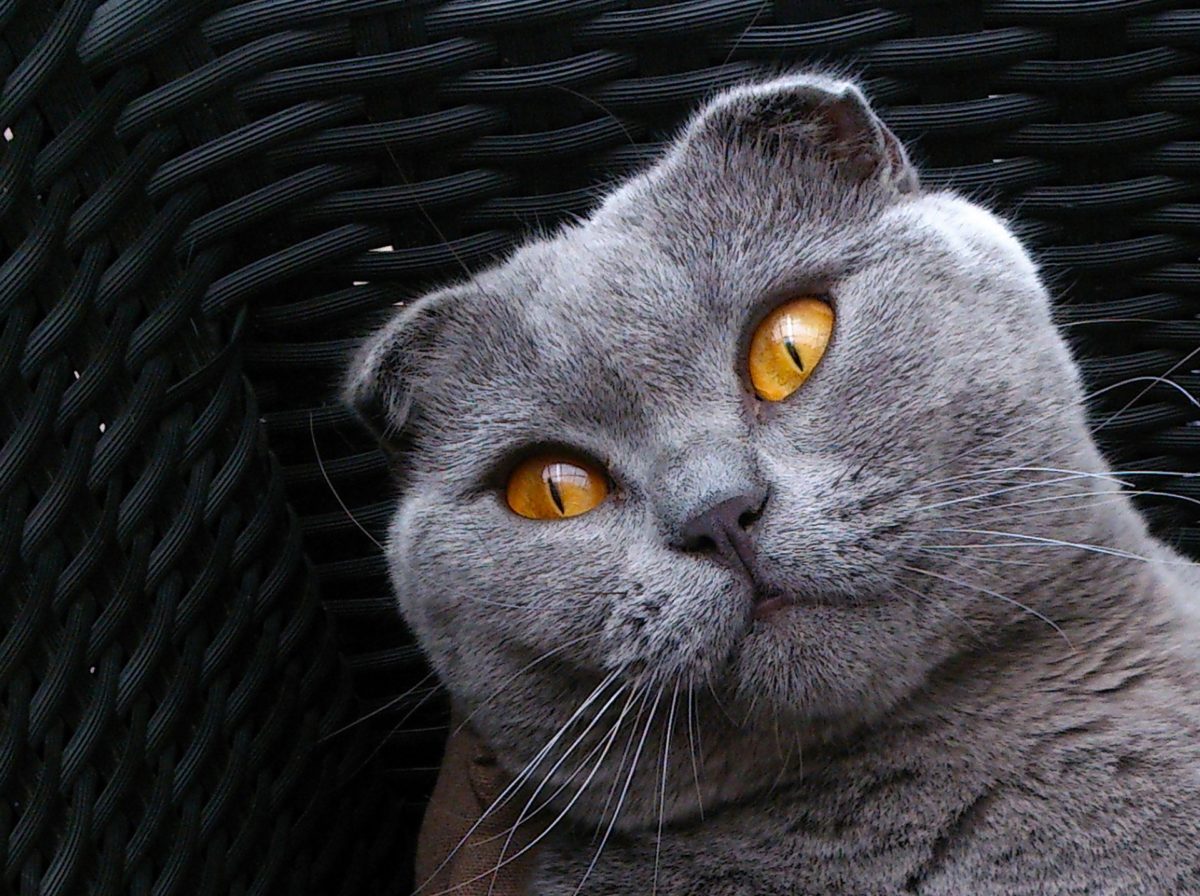
Health and welfare of cats with folded or curled ears
There are several breeds of cat with ears that do not stand up in the normal way – some folding downwards and some curling backwards. The most well known is the Scottish Fold cat, where the Scottish Fold gene mutation detrimentally affects cartilage, most obviously seen making the ear cartilage fold. However, the cartilage defect affects their joints as well as the ear cartilage, with defective bone development and severe bone and cartilage abnormalities in all cats with folded ears. This is known as osteochondrodysplasia – a general term for a disorder of the development of bone and cartilage. These bone and cartilage abnormalities lead to severe and painful arthritis and Scottish Folds can suffer from severe and painful degenerative joint disease, also known as osteoarthritis, throughout their lives. As the disease progresses, the joints stiffen, bones fuse and movement becomes more difficult and extremely painful.
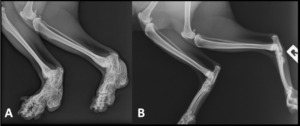
Bone abnormalities in Scottish Fold cats: ‘A’ shows a severely affected cat and ‘B’ a mildly affected cat (photo courtesy of Richard Malik)
The genetics of osteochondrodysplasia
The mutation causing osteochondrodysplasia results from a single autosomal dominant gene, although the gene may have incomplete penetrance, and thus the abnormalities may vary in severity between one cat and another.
All Scottish Fold cats suffer from variable degrees of painful degenerative joint disease, which can result in fusing of the tail, tarsi (ankles) and stifles (knees). This is apparent clinically as a reluctance to move, and abnormal posture and gait, lameness and short misshapen limbs.
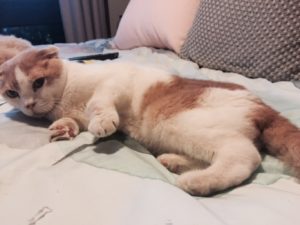
A severely affected Scottish Fold Cat
International Cat Care believe that it is simply unethical to continue to breed cats with a genetic mutation that is known to cause significant painful disease – the rationale for breeding these cats was purely human pleasure, as some people believe the folded ears look appealing. This is an unnatural appearance for a cat though, and the underlying genetic defect has far reaching and severe consequences for the health of the cat.
International Cat Care has joined forces with the British Veterinary Association (BVA) to raise awareness on the suffering of Scottish Fold cats because of the way they have been bred to look.
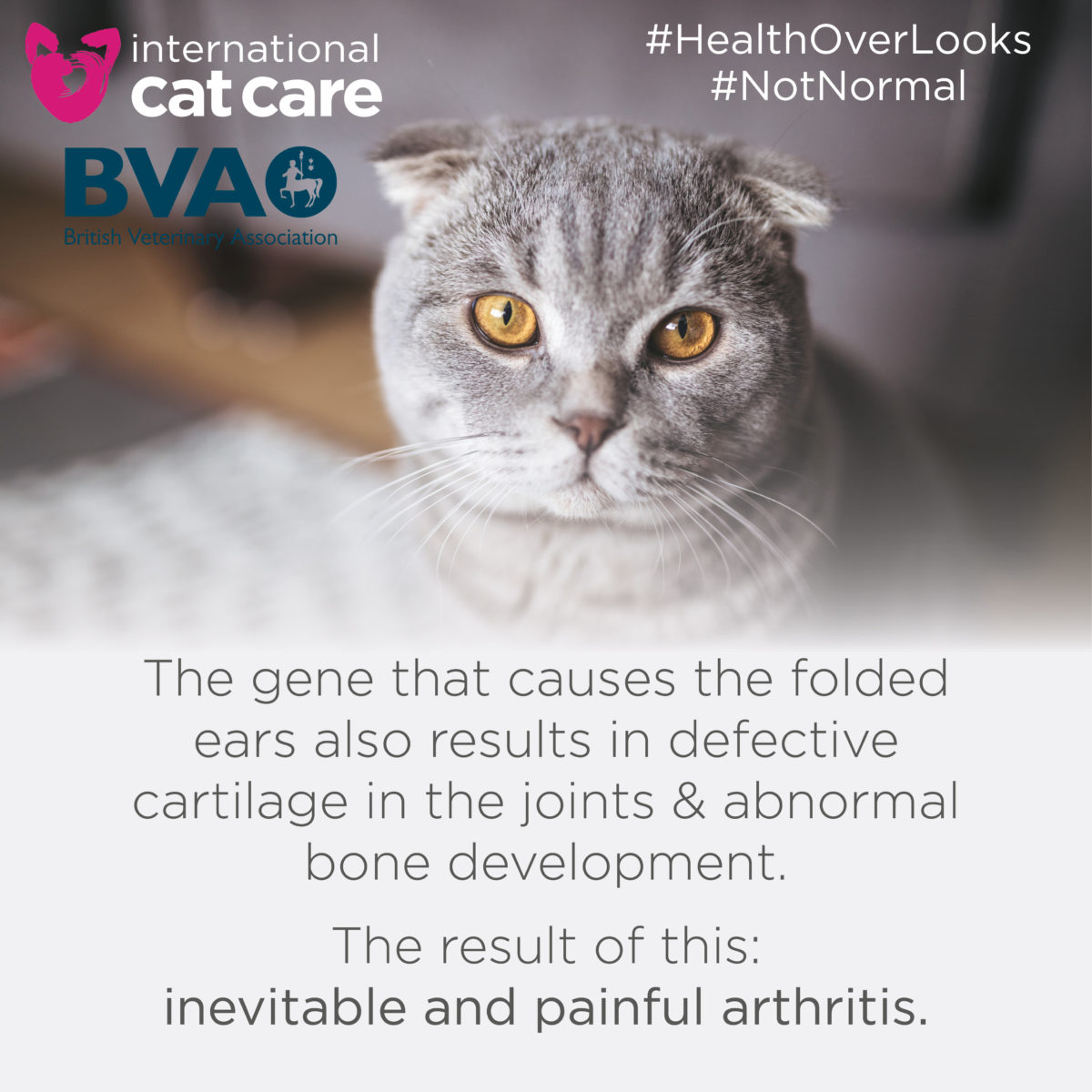
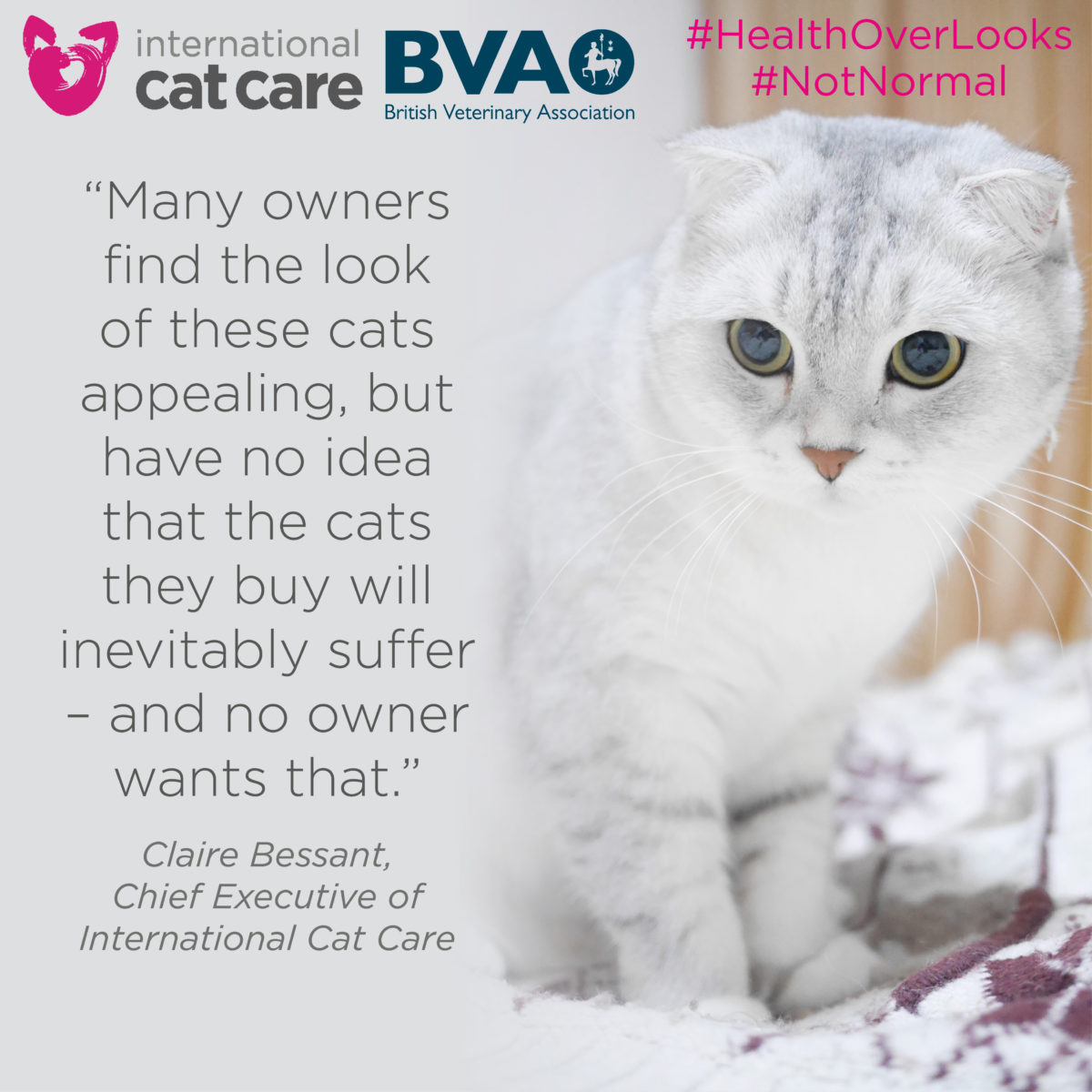
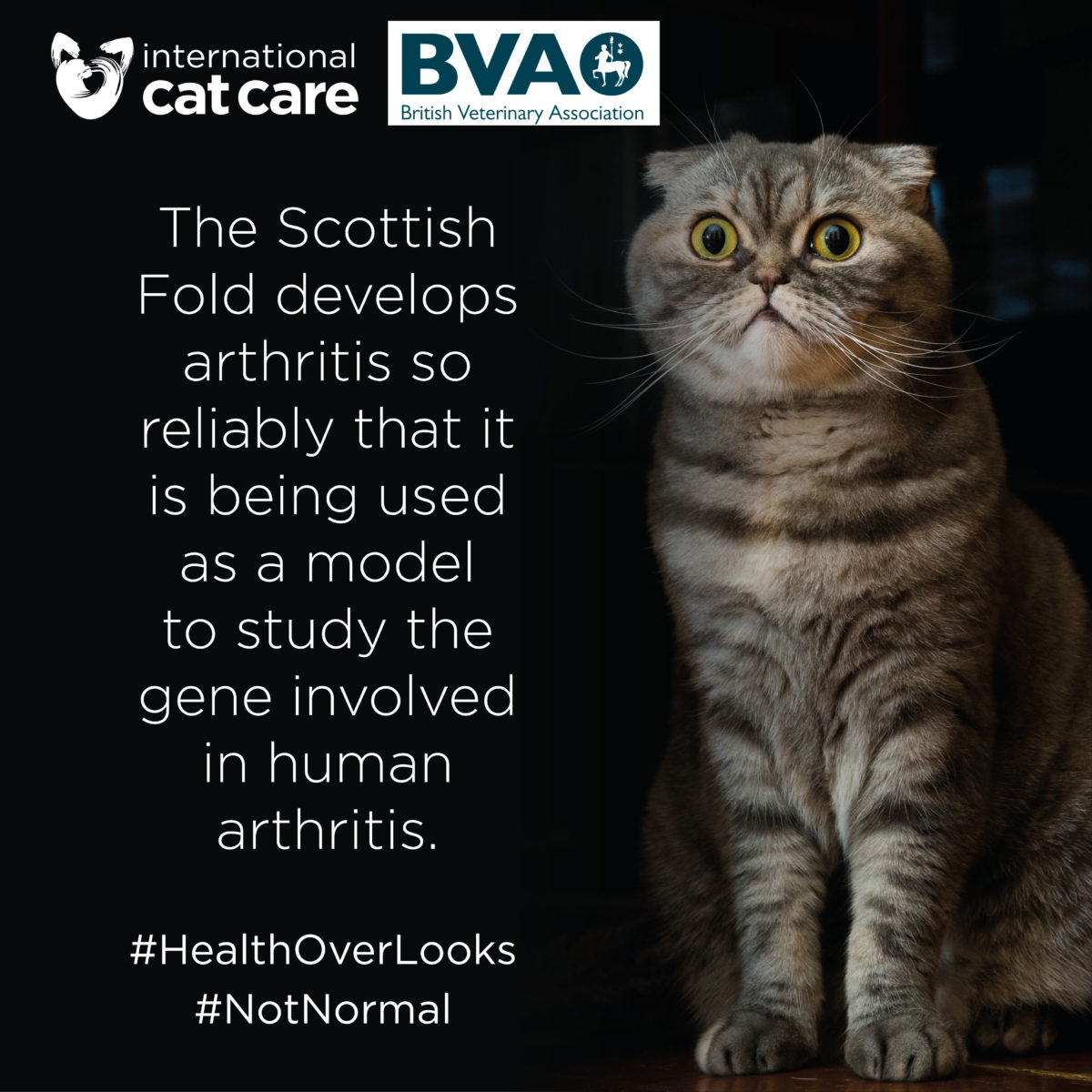
Folded or curled ears can also make it difficult for the cat to clean its ears, so owners may need to remove any wax or dirt accumulation from the ear to help prevent discomfort and infection. Unfortunately, breeds with folded or curled ears are now being crossed with other breeds with different genetic mutations with very little concern for the cat.
Our position on breeding cats is that first no harm should be done. We know that these cats can have severe joint problems because of the genetic defect needed to get the folded ear look; we should not breed these cats.
Important
We have limited the information about inherited disorders to those conditions that are known and proven to exist within a breed. For many breeders and many conditions, insufficient information may be available at this time to know whether any particular breed is necessarily free of any particular condition.
In general, pedigree breeds use a much smaller gene pool for breeding than domestic cats and therefore have a higher risk of developing inherited disorders. In addition, a number of ‘newer’ pedigree breeds are derived from matings between one or more ‘older’ breeds, and in these situations perpetuation of inherited problems that were seen in older breeds is likely within the newer breeds.
Thank you for visiting our website, we hope you have found our information useful.
All our advice is freely accessible to everyone, wherever you are in the world. However, as a charity, we need your support to enable us to keep delivering high quality and up to date information for everyone. Please consider making a contribution, big or small, to keep our content free, accurate and relevant.
Support International Cat Care from as little £3
Thank you.
Donate Now


